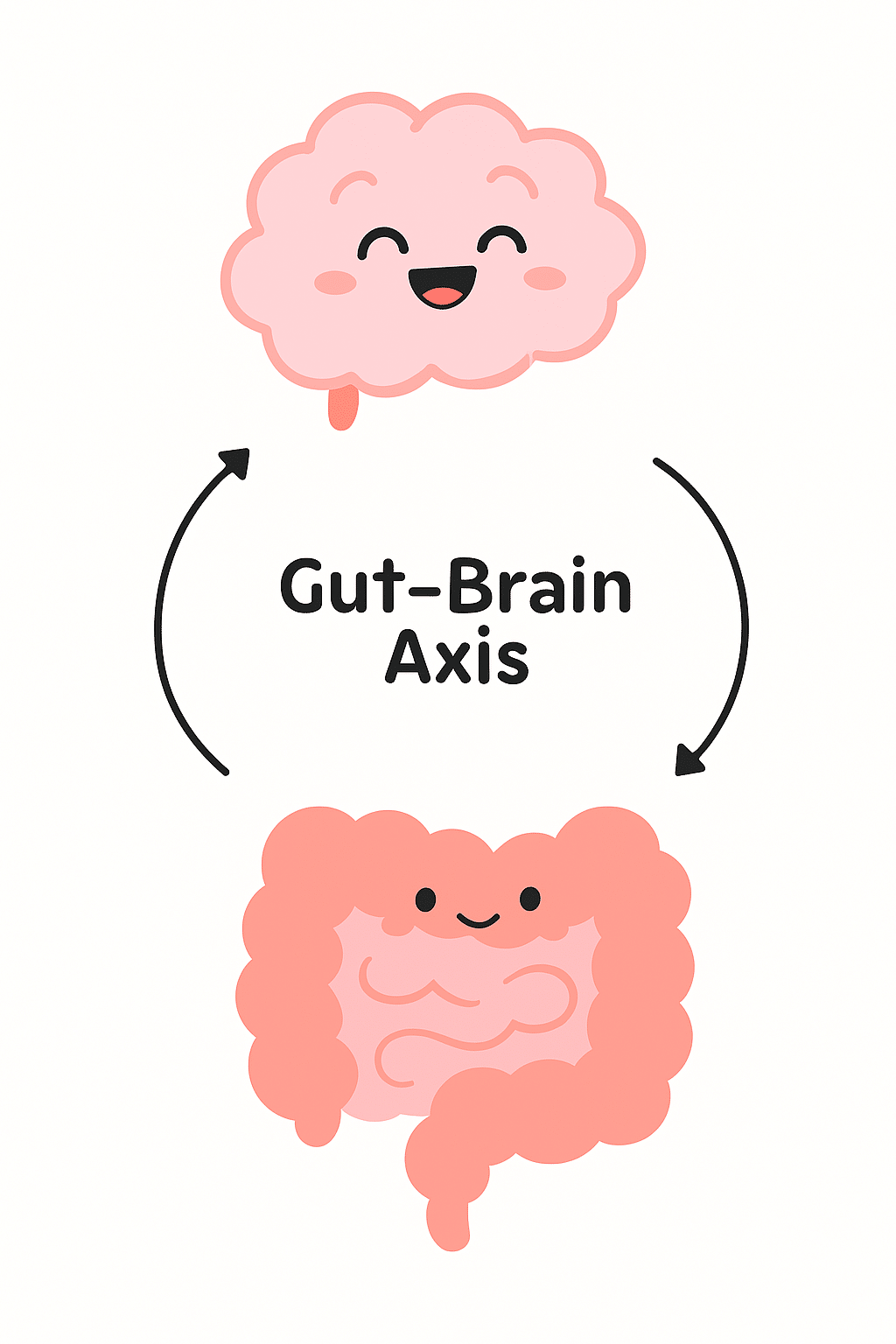The Vitamins and Minerals That Support Energy Indirectly
In the previous blog, we explored the vitamins and minerals that directly participate in ATP production, which is the process

When we think about brain health, most of us picture neurons firing, synapses connecting, and memory networks lighting up. But what if one of the most powerful influences on your brain was actually found in your gut?
Often called the “second brain”, your gut is home to trillions of microbes that send signals to your brain every single day. This two-way communication system is called the gut-brain axis and growing research shows it plays a critical role in mood, memory, focus, and even long-term protection against dementia(1).
The catch? Modern life is not always kind to our gut. Stress, processed foods, antibiotics, and poor sleep can all disrupt the balance of gut microbes, leading to inflammation and “stress signals” that travel directly to the brain. Over time, this imbalance can affect not only digestion but also cognition, resilience, and emotional wellbeing.
The gut and brain stay in constant conversation through three main pathways(2):
When this system is in balance, the brain is sharper, calmer, and more resilient. When disrupted, the brain becomes more vulnerable to stress, poor focus, and long-term cognitive decline.
Research suggests that certain nutrients may influence brain function through the gut-brain connection. Here are some examples from current studies:
Together, these nutrients create a strong foundation for a healthy gut-brain axis one that supports sharper thinking, steadier mood, and long-term brain protection.
A healthy gut does not just prevent digestive discomfort, but it is one of the most powerful ways to support your brain every single day. By taking care of your microbiome, you are not just helping your digestion, you are building long-term resilience for memory, focus, and cognitive longevity.
Think of your gut as your brain’s closest ally. By nourishing both together, you strengthen your entire mind-body connection.
Small daily habits make the difference:
Your “second brain” may hold the key to unlocking your first.
To receive our Newsletter of Research into Vitamins that may help Memory, reduce Tiredness and reduce the chances of Dementia, Alzheimer’s and Cognitive decline please leave your email address below.
In the previous blog, we explored the vitamins and minerals that directly participate in ATP production, which is the process
Feeling tired even after a full night’s sleep? Struggling with afternoon crashes, brain fog, or low stamina during workouts? While
We use cookies to enhance your browsing experience and to analyse our website traffic. We will not share any of your personal details.